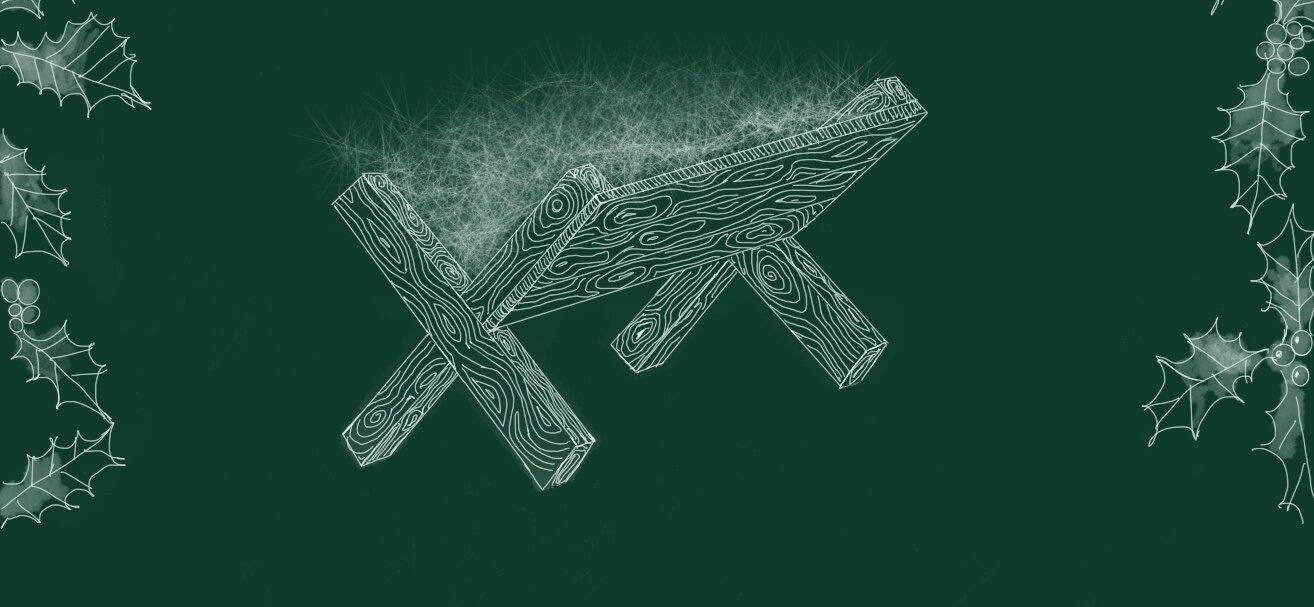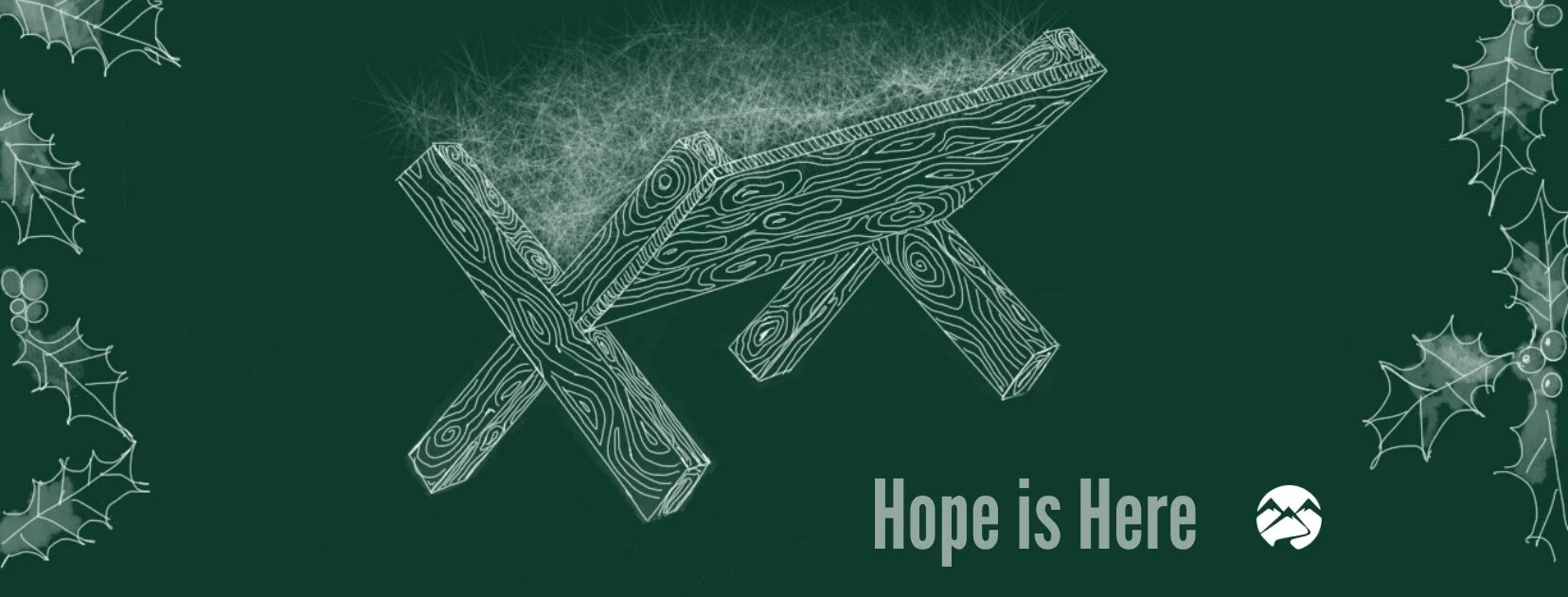If you’ve ever taken a look at both of the nativity accounts, you might have noticed something strange: they are quite different. Does that mean the Bible is contradictory or simply that Matthew and Luke didn’t talk it over when they were punching out their gospels? If those two stories don’t match up, what does this mean for Jesus?
While there is absolutely no reason for you to lose sleep over this, it does raise the big question: why? Why would we get two different accounts of the same guy being born if they don’t match up? The answer to that question is a bit of a jab at our Western modernity. See, to us, we might see the nativity scene as this concrete historical moment; and while it definitely happened, we often fall into the trap of thinking that history is written with the intention of being a camera in the crowd. A sense of “this is what you would have seen if you were there.” One book (Kings) might tell you that Israel's exile was due to one king while another (Chronicles) might blame it on the people. And this is not okay to us.
But, think about it. When a biography is written, are all the details of a person’s life set to text? That sounds incredibly boring. Are all the events in chronological order? Sometimes, but many works organize them by theme - you might meet a famous individual’s spouse halfway through the story by jumping back to their youth. This is how we do history because we love a good story. We are kind of built that way - hence, the Bible. But it also teaches us that writers often have an agenda when they craft their work. Now, that sounds bad, but agenda here simply means writing to a specific audience or to convey a certain message. Check out Paul’s letters to the churches or the letter to the Hebrews. What’s important for us as modern readers is to consider that audience and message when we come to the Bible. It might make things a little less scary.
On to Matthew.
A key theme throughout the book is Matthew’s portrayal of Jesus as Israel’s messiah. That may seem rather fundamental and perhaps simplistic in our 2000-years removed eyes, but try to zoom back into the minds of the Jews at the time:
God has been essentially silent for about 400 years.
Rome is the baddest kid on the block and is currently occupying your lands.
You’ve seen several attempts at a “messiah” figure already, and some even got a book and holiday after them.
By all accounts, you are ripe and ready for a savior to come in on a white horse and save the day. Maybe put the powers under his feet. But, you’re not expecting someone like Jesus, a backwater kid from an out-of-the-way place. A nobody. So, in order to grab the attention of his Jewish readers, Matthew sets out to connect Jesus to Israel's history: the Davidic line, the new Moses-like teacher, and the one who would fulfill the prophecies written by the likes of Isaiah.
In everyone’s favorite part of Matthew, Chapter 1’s genealogy, the writer lays out the road to Jesus from Abraham. This section is more focused on how Jesus is connected to David, but we can zoom into verses 3 & 4 and assume that the Egyptian generations are found here. Genesis leaves off with Jacob’s kids going into Egypt, and we know that the story of Ruth is removed from that account. Thus, while not entirely certain, those generations of slavery are in there - Israel is keen on not forgetting it.
Jumping down to verse 21, an angel tells Joseph what Jesus’s name will be “because he will save his people from their sins.” The funny bit here is that this could be seen as God repeating himself. He has already saved the people of Israel from their slavery through Moses, so Jesus coming to do the same is a rhythm of history. Now, sins and slavery are not exactly the same thing, but Paul talks about us being enslaved to sin, and Jesus does so as well in the Gospel of John:
When you were slaves to sin, you were free from the control of righteousness… But now that you have been set free from sin and have become slaves of God… - Romans 6:20, 22
Jesus replied, “Very truly I tell you, everyone who sins is a slave to sin. - John 8:34
Sin is slavery, which is why we are redeemed, or bought, out of it. Here, and later on in the prophecy of Micah in chapter 2, Matthew is tying Jesus to the rescue from slavery and the shepard to watch over his sheep - or people - something closely aligned with another shepard turned deliverer.
But you, Bethlehem, in the land of Judah,
are by no means least among the rulers of Judah;
for out of you will come a ruler
who will shepherd my people Israel. - Matthew 2:6 & Micah 5:2, 4
Next, the wise men. One could connect the wise men (or maji) of Herod to the sorcerers of Pharaoh, since Herod is acting as Pharaoh in this story. But, that doesn’t really make sense since the maji are on Jesus’s team, and their presence doesn’t count as a connection. However, their actions do connect them with a potentially forgotten character of the Moses story. Remember Moses’s sister? In a clever move, she uses her wit to save Moses from Pharoah’s murder decree, and a theme of “tricking or outwitting” can be seen in other episodes in the Old Testament. Back to the maji, they got a message from the angel and decided to use a little trickery of their own, sneaking in the backdoor to their home country. Matthew even explicitly states this and uses it as the catalyst for his comparison of Herod to Pharoah.
When Herod realized that he had been outwitted by the Magi, he was furious, and he gave orders to kill all the boys in Bethlehem and its vicinity who were two years old and under, in accordance with the time he had learned from the Magi. - Matthew 2:16
However, in an interesting subversion of this story, Jesus family flees to Egypt to escape the mass slaughter.
When they had gone, an angel of the Lord appeared to Joseph in a dream. “Get up,” he said, “take the child and his mother and escape to Egypt. Stay there until I tell you, for Herod is going to search for the child to kill him.”
So he got up, took the child and his mother during the night and left for Egypt, where he stayed until the death of Herod. And so was fulfilled what the Lord had said through the prophet: “Out of Egypt I called my son.” - Matthew 2:13-15
One last connection between Moses and Jesus is in regard to their returns. Both are told that those who were persecuting them had since died, and thus, it was safe to go back. The Moses story gets 269x more interesting if you keep reading a few verses down, but for brevity:
Now the Lord had said to Moses in Midian, “Go back to Egypt, for all those who wanted to kill you are dead.” So Moses took his wife and sons, put them on a donkey and started back to Egypt. And he took the staff of God in his hand. - Exodus 4:19-20
After Herod died, an angel of the Lord appeared in a dream to Joseph in Egypt 20and said, “Get up, take the child and his mother and go to the land of Israel, for those who were trying to take the child’s life are dead.” - Matthew 2:19-20
So, what is the purpose of all of this? To Matthew, it is to paint Jesus as the figure that Israel has been waiting for, and that message applies to us, as well. But more importantly, I think this highlights the fact that our savior is multifaceted. To sum up Jesus in one story would make the world explode, to reference John (21:25). These gospels offer a perspective, and that shouldn’t bother anyone. Just because all of the four gospels don’t agree on aspects of Jesus’s life does not make them wrong or Jesus is a hoax. Use these perspectives to better understand who the Isrealites thought Jesus was, who the Gentiles thought he was, and who we believe that he is.



















